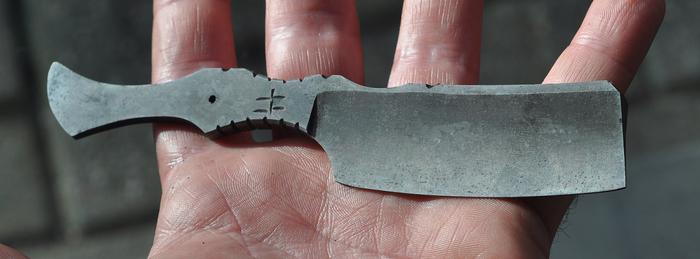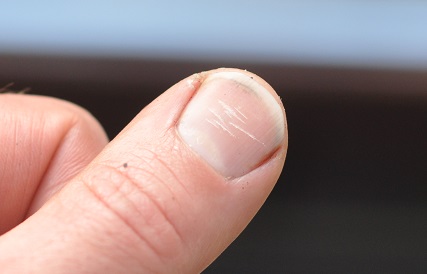Results 11 to 20 of 65
Thread: Wootz razor in progress
Threaded View
-
01-17-2016, 09:48 PM #1
 Wootz razor in progress
Wootz razor in progress
I am making my first wootz razor. At the Gembloux knife show I met a Belgian craftsman name Evrahim Barran who specialized in making wootz bar stock. His wootz is excellent, and has a nice pattern. Like all good wootz, it is very expensive. totally worth it though. It has some very nice properties (more on that later), and I really want to make a kitchen knife in wootz for my own personal use in the near future.
The main reason for making this razor is to figure out wootz. This stuff is already very expensive, but not even close to the price for the wootz by Alfred Pendray I have waiting for a project for someone here. , which has the double distinction of being both the most expensive steel I've heard of, and being irreplaceable. So before I throw that in the fire and beat it with a hammer, I want to know what to expect.
, which has the double distinction of being both the most expensive steel I've heard of, and being irreplaceable. So before I throw that in the fire and beat it with a hammer, I want to know what to expect.
This is what I started with. Enough steel to make 2 full size razors in my usual designs. Just because it is expensive is no reason to cut back on my design scale. Actually, it is slightly bigger than what I needed, but I decided to take an inch extra just in case I need to grind away the ends or something. And if I have some left after 2 razors, I can always use it as edge material for a small san mai billet.

Forging it was interesting. Evrahim told me that according to the Russians, forging wootz is a woman's job. It should be done gently, almost delicate, and with none of the power and violence that strong smiths often exhibit. I did many heats, kept the blade at an even bright orange, and gently tap-tap-tapped the thing to razor shape.
I did not take pics at this stage because at this point there is really no difference with normal forging processes. And taking good pics takes time away from actually doing the fun stuff. I ground the razor like I always do (check my razor making how to for details) but I ground it a bit thinner than usual. 1 mm thick, and carefully polished to 240 grit. Particularly interesting was that even while grinding with 40 grit belt, I could see the macroscopic wootz structure with my eyes, clear as day.
I normalized 6 times, then brought it back to critical temperature and after a very short soak, quenched it in preheated oil. Howard Clark told me that wootz is very shallow hardening, and would leave a hamon. With that in mind I too care to quench the entire blade horizontally, meaning that the entire edge went down in the quench at the same time. The reason for this is that it develops a natural hamon on its own, and I wanted it to be in parallel with the edge, and not slanted due to different quench temperature, oil temperature, and oil flow. It came out looking like this:

You can see where the blade is hard and where it isn't. You will also noticed that in the hardened part, the wootz structure literally jumps out of the blade. I ran the edge along my thumbnail, and this is what I got. Remember that at this stage the edge is still 1 mm thick, rounded, and none of the Damascus blades do this:
 Til shade is gone, til water is gone, Into the shadow with teeth bared, screaming defiance with the last breath.
Til shade is gone, til water is gone, Into the shadow with teeth bared, screaming defiance with the last breath.
To spit in Sightblinder’s eye on the Last Day
-


 163Likes
163Likes LinkBack URL
LinkBack URL About LinkBacks
About LinkBacks








 Reply With Quote
Reply With Quote